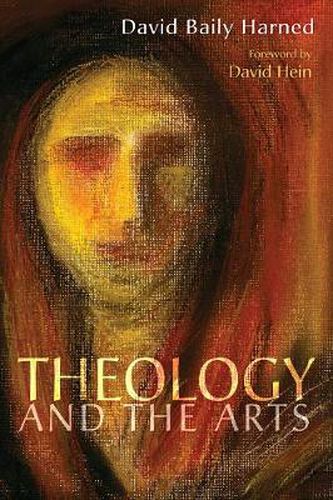Readings Newsletter
Become a Readings Member to make your shopping experience even easier.
Sign in or sign up for free!
You’re not far away from qualifying for FREE standard shipping within Australia
You’ve qualified for FREE standard shipping within Australia
The cart is loading…






This title is printed to order. This book may have been self-published. If so, we cannot guarantee the quality of the content. In the main most books will have gone through the editing process however some may not. We therefore suggest that you be aware of this before ordering this book. If in doubt check either the author or publisher’s details as we are unable to accept any returns unless they are faulty. Please contact us if you have any questions.
This treatise on the importance of what the artist does–especially the man of letters–examines recent Christian appraisals of the creative enterprise and argues that Protestant interpretations of culture today are marred by their departure from Biblical faith in God as Creator. Today, theologians find themselves writing more and more about painting, music, poetry, drama, and the novel. Many are convinced that no definition of man or interpretation of his condition is adequate if it ignores man as a creator. Some Christian writers have been content to explore the possibilities of new dialogue between religion and the arts. Others have sought to develop a theology of art–a systematic interpretation of what artists are doing, why they are doing it, and what it means in the context of the Christian story about nature, man, and God. In doing so, they have used either the image of creation, the cross, or consummation as their point of departure for an interpretation of the artist’s venture. Dr. Harned examines the merits and problems involved in the use of each image for the appraisal of the human enterprise and contends that consummation must use the doctrine of God as Creator in order to be useful to contemporary Christianity. He emphasizes the need for Protestantism to recover the idea of the natural and defines it in a way congruent with the theology of the Reformers. Here are insightful answers for all who want to understand the importance of the arts, why theologians are concerned with literature and painting, and how that concern has been expressed.
$9.00 standard shipping within Australia
FREE standard shipping within Australia for orders over $100.00
Express & International shipping calculated at checkout
This title is printed to order. This book may have been self-published. If so, we cannot guarantee the quality of the content. In the main most books will have gone through the editing process however some may not. We therefore suggest that you be aware of this before ordering this book. If in doubt check either the author or publisher’s details as we are unable to accept any returns unless they are faulty. Please contact us if you have any questions.
This treatise on the importance of what the artist does–especially the man of letters–examines recent Christian appraisals of the creative enterprise and argues that Protestant interpretations of culture today are marred by their departure from Biblical faith in God as Creator. Today, theologians find themselves writing more and more about painting, music, poetry, drama, and the novel. Many are convinced that no definition of man or interpretation of his condition is adequate if it ignores man as a creator. Some Christian writers have been content to explore the possibilities of new dialogue between religion and the arts. Others have sought to develop a theology of art–a systematic interpretation of what artists are doing, why they are doing it, and what it means in the context of the Christian story about nature, man, and God. In doing so, they have used either the image of creation, the cross, or consummation as their point of departure for an interpretation of the artist’s venture. Dr. Harned examines the merits and problems involved in the use of each image for the appraisal of the human enterprise and contends that consummation must use the doctrine of God as Creator in order to be useful to contemporary Christianity. He emphasizes the need for Protestantism to recover the idea of the natural and defines it in a way congruent with the theology of the Reformers. Here are insightful answers for all who want to understand the importance of the arts, why theologians are concerned with literature and painting, and how that concern has been expressed.